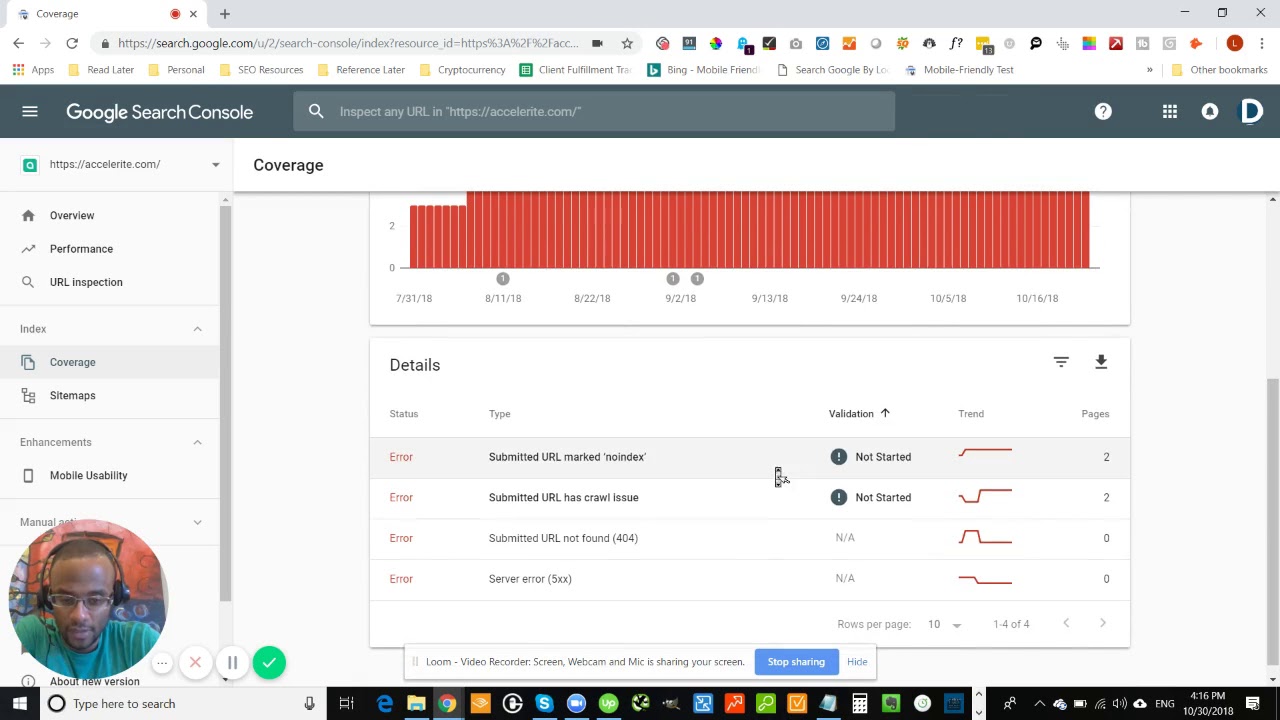In the ever-evolving world of SEO, understanding the intricacies of crawl errors crawl budget ranking factorsis essential for achieving higher visibility and organic traffic. Search enginealgorithms continuously evaluate websites based on various factors, and comprehending these elements can help you optimize your website effectively. However, what are crawl errors crawl budgetranking factors and how does it affect your brand?
Crawl Errors Crawl Budget Ranking Factors
When it comes to optimizing your website for search engines, understanding the intricate workings of crawl errors, crawl budget, and ranking factors is essential. These elements play a significant role in determining your website's visibility, organic traffic, and overall performance in search engine rankings.
Let's explore the different types of crawl errors and their causes, provide actionable tips to optimize your website's crawl budget, and shed light on the essential ranking factors that can improve your search engine rankings.
So, let's dive in and uncover the secrets behind crawl errors, crawl budget, and ranking factors to unlock the full potential of your website in the search engine landscape.
What Are Crawl Errors?
Crawl errors, also known as crawl issues, are instances when search engine bots encounter problems while accessing and indexing web pages on your site. These errors can prevent search engines from properly understanding and ranking your content.
Types Of Crawl Errors
There are several types of crawl errors, including:
- Server errors (5XX) -These errors occur when the server hosting your website fails to respond properly, resulting in an internal server error or server timeout.
- Page not found errors (404) - This error indicates that the requested URL doesn't exist on your website or has been moved without proper redirection.
- Redirect errors (3XX) -These errors occur when the requested URL redirects to another page that encounters an issue, such as a redirect loop or a redirect to an error page.
Common Causes Of Crawl Errors
Crawl errors can be caused by various factors, including:
- Broken internal or external links
- Incorrect URL structures or redirections
- Server or hosting issues
- Slow website speed or page load times
- Robots.txt file misconfigurations
- Malware or security issues
To identify and resolve crawl errors, regularly monitor your website's crawl error reports in Google Search Consoleor other SEOtools. Fixing these errors ensures that search engines can effectively crawl and index your website's pages.

How to View Crawl Errors in Google Search Console | Destiny Marketing Solutions
What Is Crawl Budget?
Crawl budget refers to the number of pages search engines allocate for crawling on your website within a given timeframe. It is determined by various factors, including the relevance and authority of your content, the quality of your website's structure, and the overall crawlability of your site.
Factors Affecting Crawl Budget
Several factors can impact your website's crawl budget, such as:
- Website size: The number of pages on your website can affect the crawl budget. Larger websites with extensive content may have a higher crawl budget allocation.
- Duplicate or low-quality content: Pages with duplicate or low-quality content may consume your crawl budget without providing much value to search engines.
- URL parameters: URLs with excessive parameters can create crawl inefficiencies as search engines may struggle to understand the purpose of each URL.
Optimizing Your Website's Crawl Budget
To optimize your website's crawl budget, consider implementing the following strategies:
- Improve site structure -Ensure that your website has a clear and organized structure with logical navigation. Use internal linking to connect related pages, making it easier for search engine bots to crawl and discover your content.
- Optimize robots.txt -Review your robots.txt file to ensure that it is not blocking important pages or sections of your website from being crawled. Avoid using excessive directives that may restrict search engine bots unnecessarily.
- Manage crawlable URLs -Use canonical tags to consolidate duplicate content and set preferred URLs. This helps search engines understand the canonical version of a page, reducing crawl budget waste on duplicate variations.
- Control URL parameters -If your website uses URL parameters, utilize tools like Google's URL Parameter Tool in Search Console to instruct search engines on how tohandle them. This helps avoid unnecessary crawling of URL variations with different parameter combinations.
- Fix broken links and redirects - Regularly audit your website for broken links and fix them promptly. Broken links not only frustrate users but also waste crawl budget. Similarly, ensure that redirects are implemented correctly and do not create redirect chains or loops.
- Optimize page speed -Improve your website's loading speed by optimizing images, minimizing code, and leveraging caching techniques. Faster-loading pages not only enhance user experiencebut also enable search engine bots to crawl more efficiently.
- Monitor crawl stats -Keep an eye on your website's crawl stats in Google Search Console or other SEOtools. Analyze the number of pages crawled, the time spent downloading pages, and the response codes. Monitoring these metrics can help identify crawl-related issues and take appropriate actions.
By implementing these strategies, you can optimize your website's crawl budget, allowing search engines to allocate more resources to important and valuable pages, ultimately improving your overall visibility in search results.

What is Crawl Budget in SEO | How to do Crawl Budget Optimization
What Are Ranking Factors?
Ranking factors are the various elements that search engines consider when determining the position of a webpage in search engine results pages (SERPs). These factors play a crucial role in determining the relevance, authority, and overall quality of a webpage.
Essential Ranking Factors For SEO
While search engines utilize hundreds of ranking factors, some of the most essential ones include:
- Content relevance -Creating high-quality, informative, and relevant content that satisfies user intentis paramount. Optimize your content by using relevant keywords, headings, and semantic variations.
- Backlinks-The number and quality of backlinks pointing to your website have a significant impact on its authority and ranking. Focus on acquiring high-quality backlinks from reputable sources within your industry.
- Page load speed -Website speed is a crucial ranking factor, as it directly affects user experience. Optimize your website's performance by minimizing code, compressing images, and leveraging browser caching.
- Mobile-friendliness -With the increasing use of mobile devices, having a mobile-friendly website is essential. Ensure that your website is responsive, provides a seamless mobile experience, and passes the mobile-friendly test.
- User experience (UX) -Search engines consider user engagement metrics, such as bounce rate, time on page, and click-through rate, as indicators of a webpage's quality and relevance. Enhance user experience by improving navigation, readability, and overall website design.
- On-page optimization -Properly optimizing your web pages with relevant title tags, meta descriptions, headings, and structured data can improve your visibility in search results.
- Social signals -While the direct impact of social mediasignals on SEO is debated, having a strong social media presence can indirectly contribute to higher visibility and brand awareness, potentially leading to more backlinks and organic traffic.
Strategies To Improve Ranking Factors

Google Ranking Factors: Which Ones are Most Important?
To improve your website's ranking factors, consider the following strategies:
- Keyword research and optimization - Conduct thorough keyword research to identify relevant and high-volume keywords for your content. Optimize your web pages by strategically incorporating these keywords in your titles, headings, meta tags, and throughout your content. However, ensure that your keyword usage feels natural and does not compromise the readability or user experience.
- Create high-quality and engaging content -Focus on creating original, valuable, and engaging content that addresses the needs and interests of your target audience. Craft well-structured articles that provide comprehensive information on the topic at hand. Incorporate relevant images, videos, and infographics to enhance the visual appeal and shareability of your content.
- Earn authoritative backlinks -Building a strong backlink profile is crucial for improving your website's authority and ranking. Develop a backlink acquisition strategy that includes outreach to relevant websites, guest blogging, creating shareable content, and leveraging industry influencers. The key is to earn natural, high-quality backlinks from reputable sources.
- Optimize for local search -If you have a local business, optimizing your website for local search is essential. Create a Google My Businessprofile, ensure your NAP (Name, Address, Phone Number) information is consistent across directories, and actively seek customer reviews. Additionally, include location-specific keywords in your content and meta tags.
- Improve user experience -Enhancing user experience on your website not only keeps visitors engaged but also signals to search engines that your site provides value. Improve page load speed, optimize for mobile devices, ensure intuitive navigation, and make your content easy to read and scan. Incorporating user-friendly design elements and clear calls to action can also help improve user experience.
- Utilize schema markup-Implement schema markup, also known as structured data, to provide additional context to search engines about your content. This can enhance your search results with rich snippets, such as star ratings, reviews, and other relevant information, making your listing more enticing to users.
- Monitor and adapt -Continuously monitor your website's performance using web analytics tools and SEO software. Track your keyword rankings, organic traffic, and user engagement metrics. Analyze the data and make informed decisions to refine your SEO strategies and tactics.
Remember, SEO is an ongoing process, and it takes time and effort to see significant results. By focusing on these ranking factors and implementing effective optimization strategies, you can improve your website's visibility and organic search rankings over time.
People Also Ask
How Can Crawl Errors Affect My Website's Performance?
Crawl errors can negatively impact your website's performance in search results. When search engine bots encounter crawl errors, they may be unable to access and index your content accurately. This can result in lower visibility and reduced organic traffic. Regularly monitoring and resolving crawl errors is crucial to ensure that search engines can crawl and index your web pages effectively.
What Steps Can I Take To Optimize My Website's Crawl Budget?
To optimize your website's crawl budget, consider improving your site structure, optimizing your robots.txt file, managing crawlable URLs, fixing broken links and redirects, optimizing page speed, and monitoring crawl stats. By implementing these strategies, you can ensure that search engine bots can efficiently crawl and index your web pages, leading to improved visibility in search results.
Are There Any Specific Ranking Factors That Carry More Weight In Search Engine Algorithms?
While search engine algorithms consider numerous ranking factors, the exact weight or importance of each factor is not publicly disclosed. However, content relevance, backlinks, page load speed, mobile-friendliness, user experience, and on-page optimization are widely acknowledged as influential ranking factors. It's essential to focus on improving these factors to enhance your website's overall performance in search engine rankings.
Conclusion
In conclusion, understanding crawl errors and crawl budget ranking factors is crucial for effective SEO. By addressing crawl errors, optimizing your website's crawl budget, and focusing on essential ranking factors, you can improve your website's visibility and organic search rankings.
Remember to regularly monitor crawl error reports, fix broken links and redirects, optimize your site structure, and prioritize valuable content creation. Implement strategies to earn authoritative backlinks, optimize for local search if applicable, and enhance user experience. Utilize schema markup to provide additional context to search engines, and consistently monitor your website's performance to make data-driven decisions.